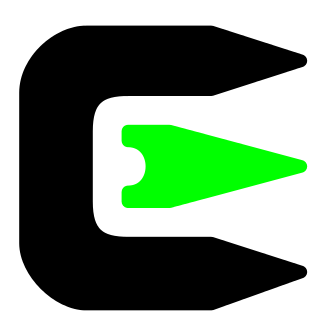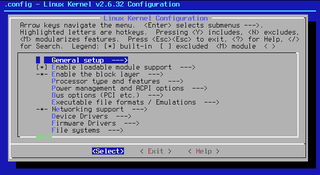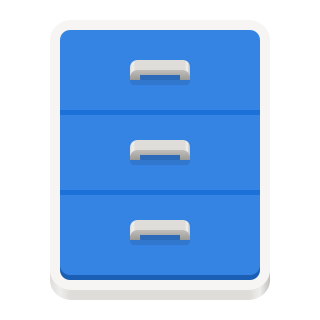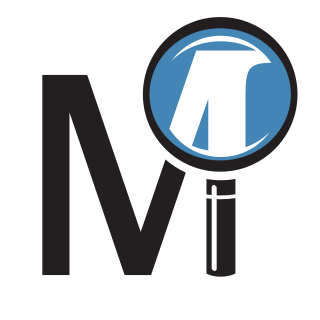
Cygwin is a free and open-source Unix-like environment and command-line interface (CLI) for Microsoft Windows. The project also provides a software repository containing many open-source packages. Cygwin allows source code for Unix-like operating systems to be compiled and run on Windows. Cygwin provides native integration of Windows-based applications.

Free software, libre software, libreware sometimes known as freedom-respecting software is computer software distributed under terms that allow users to run the software for any purpose as well as to study, change, and distribute it and any adapted versions. Free software is a matter of liberty, not price; all users are legally free to do what they want with their copies of a free software regardless of how much is paid to obtain the program. Computer programs are deemed "free" if they give end-users ultimate control over the software and, subsequently, over their devices.

GNU is an extensive collection of free software, which can be used as an operating system or can be used in parts with other operating systems. The use of the completed GNU tools led to the family of operating systems popularly known as Linux. Most of GNU is licensed under the GNU Project's own General Public License (GPL).

ncurses is a programming library for creating textual user interfaces (TUIs) that work across a wide variety of terminals; it is written in a way that attempts to optimize the commands that are sent to the terminal, so as reduce the latency experienced when updating the displayed content.

GNOME Files, formerly and internally known as Nautilus, is the official file manager for the GNOME desktop. GNOME Files, same as Nautilus, is a free and open-source software under the terms of the GNU Lesser General Public License.

GNU Wget is a computer program that retrieves content from web servers. It is part of the GNU Project. Its name derives from "World Wide Web" and "get". It supports downloading via HTTP, HTTPS, and FTP.
The Mozilla Public License (MPL) is a free and open-source weak copyleft license for most Mozilla Foundation software such as Firefox and Thunderbird. The MPL license is developed and maintained by Mozilla, which seeks to balance the concerns of both open-source and proprietary developers. It is distinguished from others as a middle ground between the permissive software BSD-style licenses and the GNU General Public License. As such, it allows the integration of MPL-licensed code into proprietary codebases, as long as the MPL-licensed components remain accessible under the terms of the MPL.

GNU Midnight Commander is a free cross-platform orthodox file manager. It was started by Miguel de Icaza in 1994 as a clone of the then-popular Norton Commander.

GnuTLS is a free software implementation of the TLS, SSL and DTLS protocols. It offers an application programming interface (API) for applications to enable secure communication over the network transport layer, as well as interfaces to access X.509, PKCS #12, OpenPGP and other structures.

Krusader is an advanced orthodox file manager for KDE and other desktops in the Unix world. It is similar to the console-based GNU Midnight Commander, GNOME Commander for the GNOME desktop environment, or Total Commander for Windows, all of which can trace their paradigmatic features to the original Norton Commander for DOS. It supports extensive archive handling, mounted filesystem support, FTP, advanced search, viewer/editor, directory synchronisation, file content comparisons, batch renaming, etc.
The following tables compare general and technical information for a number of notable file managers.

Linux is a family of open-source Unix-like operating systems based on the Linux kernel, an operating system kernel first released on September 17, 1991, by Linus Torvalds. Linux is typically packaged as a Linux distribution (distro), which includes the kernel and supporting system software and libraries — many of which are provided by the GNU Project — to create a complete operating system.

The history of free and open-source software begins at the advent of computer software in the early half of the 20th century. In the 1950s and 1960s, computer operating software and compilers were delivered as a part of hardware purchases without separate fees. At the time, source code—the human-readable form of software—was generally distributed with the software, providing the ability to fix bugs or add new functions. Universities were early adopters of computing technology. Many of the modifications developed by universities were openly shared, in keeping with the academic principles of sharing knowledge, and organizations sprung up to facilitate sharing.

Sumatra PDF is a free and open-source document viewer that supports many document formats including: Portable Document Format (PDF), Microsoft Compiled HTML Help (CHM), DjVu, EPUB, FictionBook (FB2), MOBI, PRC, Open XML Paper Specification, and Comic Book Archive file. If Ghostscript is installed, it supports PostScript files. It is developed exclusively for Microsoft Windows.

A free-software license is a notice that grants the recipient of a piece of software extensive rights to modify and redistribute that software. These actions are usually prohibited by copyright law, but the rights-holder of a piece of software can remove these restrictions by accompanying the software with a software license which grants the recipient these rights. Software using such a license is free software as conferred by the copyright holder. Free-software licenses are applied to software in source code and also binary object-code form, as the copyright law recognizes both forms.

The GNU General Public Licenses are a series of widely used free software licenses, or copyleft licenses, that guarantee end users the freedoms to run, study, share, and modify the software. The GPL was the first copyleft license for general use. It was originally written by Richard Stallman, the founder of the Free Software Foundation (FSF), for the GNU Project. The license grants the recipients of a computer program the rights of the Free Software Definition. The licenses in the GPL series are all copyleft licenses, which means that any derivative work must be distributed under the same or equivalent license terms. It is more restrictive than the Lesser General Public License and even further distinct from the more widely-used permissive software licenses such as BSD, MIT, and Apache.

The GNU Free Documentation License is a copyleft license for free documentation, designed by the Free Software Foundation (FSF) for the GNU Project. It is similar to the GNU General Public License, giving readers the rights to copy, redistribute, and modify a work and requires all copies and derivatives to be available under the same license. Copies may also be sold commercially, but, if produced in larger quantities, the original document or source code must be made available to the work's recipient.

MuPDF is a free and open-source software framework written in C that implements a PDF, XPS, and EPUB parsing and rendering engine. It is used primarily to render pages into bitmaps, but also provides support for other operations such as searching and listing the table of contents and hyperlinks.

ranger is a free and open-source file manager with text-based user interface for Unix-like systems. It is developed by Roman Zimbelmann and licensed under the terms of the GNU General Public License. The program can accomplish file management tasks with a few keystrokes, and mouse input is optional. In conjunction with extensions including the rifle file opener and scope.sh, ranger can be scripted to open files with pre-defined programs, and to display a preview of the selected file by calling external programs.















